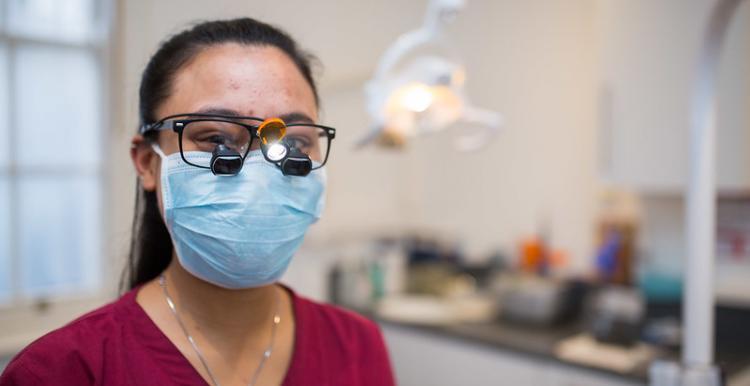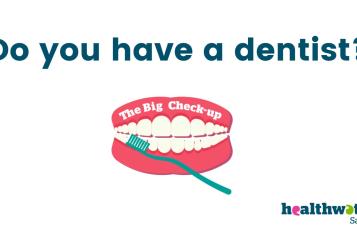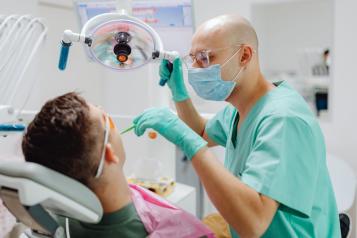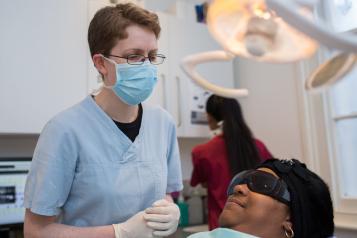Dentistry and the impact of COVID-19

Since the outbreak of COVID-19, Healthwatch have seen a significant increase in the number of people telling us about the problems they face when trying to get an NHS dentist appointment, suggesting the impact the pandemic has had on dentistry has been particularly acute. We take a look at the key issues people have raised with us.
What did people tell us?
Between July and September 2020, we heard from 1,313 people about their experiences of dentistry, compared to just 238 people in the previous three months. Their stories show that often they were unable to get the care they needed, leaving them in pain and at risk of serious long-term oral health issues:
- Access to dental care - the pandemic has made it difficult for most people to access both routine and emergency dental services, with many feeling unsure about when they would next see a dentist or leaving others to travel long distances to get care.
- No routine care - although dental practices have now reopened, people are still unable to get an appointment for check-ups, hygienist appointments or fillings.
- Limited NHS appointments - people have reported struggling to access NHS dentistry because practices are either not taking on new NHS patients or have no available NHS appointments.
- Treatment still on hold - in some cases, dentists have not been able to continue treatment started before lockdown, meaning people have been left in pain and with unresolved issues, like a broken tooth.
- Access to emergency treatment - people have told us they can’t get through to their dentist when they need urgent care or are unable to access treatment if they do not meet the criteria for it.
- Affordability - our evidence suggests practices are prioritising private patients over NHS ones or are only offering non-urgent treatment if they pay privately.
- Lack of information - inaccurate information from the NHS 111, NHS Choices and dental practice websites can leave people frustrated and confused.
- Confusion about registration - a dental practice cannot de-register someone, but often people who have had a long gap since their last appointment are told they have been, when really what the dental practice means is that there are no available NHS appointments.
- COVID-19 measures - while practices did adapt once they reopened, not all of them understood how COVID-19 measures would impact some groups of people or didn’t follow all the measures needed to make people feel safe.
4% of people also told us about positive experiences of dental care, praising staff who were helpful, kind and considerate and highlighting that clear and regular information from dental practices made them feel reassured.
Read the report
Between July and September 2020, over 38,082 people shared their experiences of using health and social care with Healthwatch. Our briefing is a summary of the key issues that the public are telling us about, including:
- Access to NHS dental care
- The support provided in care homes
- Getting COVID-19 tests
What needs to change?
Looking at the issues people raised with us highlights four essential areas for improvement:
- Clearer information - NHS England and dentists need to provide more accurate and up-to-date information for patients.
- Patient registration - NHS England and dentists need to be clear that people don't register with a dentist in the same way as with a GP surgery. There is no guarantee of treatment at the same practice as a result.
- Access to care - The Government must make more resources available to dentists to help reduce the backlog caused by the pandemic.
- Affordability - The Government and the NHS should review the cost of NHS treatment, as many people struggle to pay the NHS charge, particularly as many people have less money as a result of the pandemic.
Responding to the report, Healthwatch England Chair, Sir Robert Francis QC said:
“Even before the pandemic, people were telling us about problems in accessing NHS dental appointments but since the start of the summer these reports have hugely increased.
“If we don’t improve access to NHS dental care, not only do people risk facing far greater dental problems in the future but it also puts pressure on overstretched hospitals and GPs. Untreated dental problems can lead to pain, infection and the risk of long-term harm, which is comparable with other medical conditions.
“Health and care services are working hard to deal with the pandemic, but we believe the Government and the NHS should give more attention to resolving both long-standing and COVID-related issues in dentistry.”


